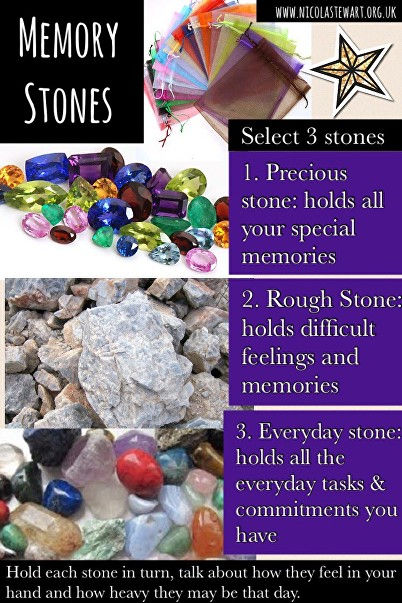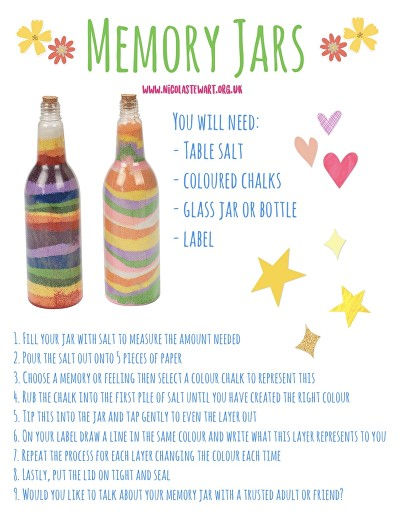Bereaved Children
You may be dealing with your own feelings of loss whilst also supporting your own child. The death of someone close to a child can evoke a whole range of emotions. Opening a narrative with a child and helping them express feelings around loss can assist in the grieving process.
Support
There are many books and videos that can support you in helping your children understand loss. Here I will list some of the most helpful resources for you.
Get creative


Make a CALM BOTTLE
These bottles are easy to make and can help bring a sense of calm when shaken up. Watching the glitter move and settle inside the bottle can reflect the mixed feelings your child may be experiencing, so the bottle can support emotional expression and soothe them.
LINKS
Explaining death to children
Depending on the age of your child they will have a different concept of death. For more information see Child Bereavement UK website.
0-2 years: Babies and young children have no understanding about death yet but they will react to the changes felt from their significant carers. You may notice more crying or sensitivity than usual.
2- 5 years: - They may be able to relate to the word 'dead' through their observations of animals or birds but they will not understand that death is permanent and may expect the person to come back.
5-7 years: - At this age children become more aware that death is permanent and they will not see the person again. They may also have a belief that they are responsible in some way. It is importantly to explicitly say that this was not beacuse of anything they did. If they have experienced loss at a younger age then this may be a time for them to reprocess the past loss.
8-12 years: - You may find at this age that your child becomes pre-occupied with the safety of the significant adults in their lives after a loss. They will need reassurance that they were not responsible for this loss. It is so important to be honest with all aspects of the death of your loved one.
Teenagers: - Developmentally children are moving from dependency to independence from their parent/carers so a unconscious grieveing will be taking place for a childhood even before they experience the death of a loved one. This may mean you see 'acting out' behaviours. It's important to maintain the usual boundaries here to reassure them.
Animations
The death of a loved one can be hard for young children to understand. ‘Archie’ is a gentle introduction from BBC Cbeebies that may help.
Disney Pixar's UP
Disney Pixar’s film, Up, is so beautiful, so poignant, and so adult in its messages on life, love, loss, grief and the memories that sustain us. Watch this film togehter and talk with your children about the parts of the film that resonate with them. Metsphor is so helpful in processing our feelings of loss.
Books
Water Bugs and Dragonflies by Doris Stickney
This book is a lovely story about the waterbugs who live in the pond and one by one travel up the reeds and disappear. Above the surface of the water they become Dragonflies. The waterbugs left behind miss their friends and wonder where they went. Here is a free slide share to read to your children.
FREE workbook from Child Bereavement UK for children and young people supporting loss of a father. DOWNLOAD HERE

